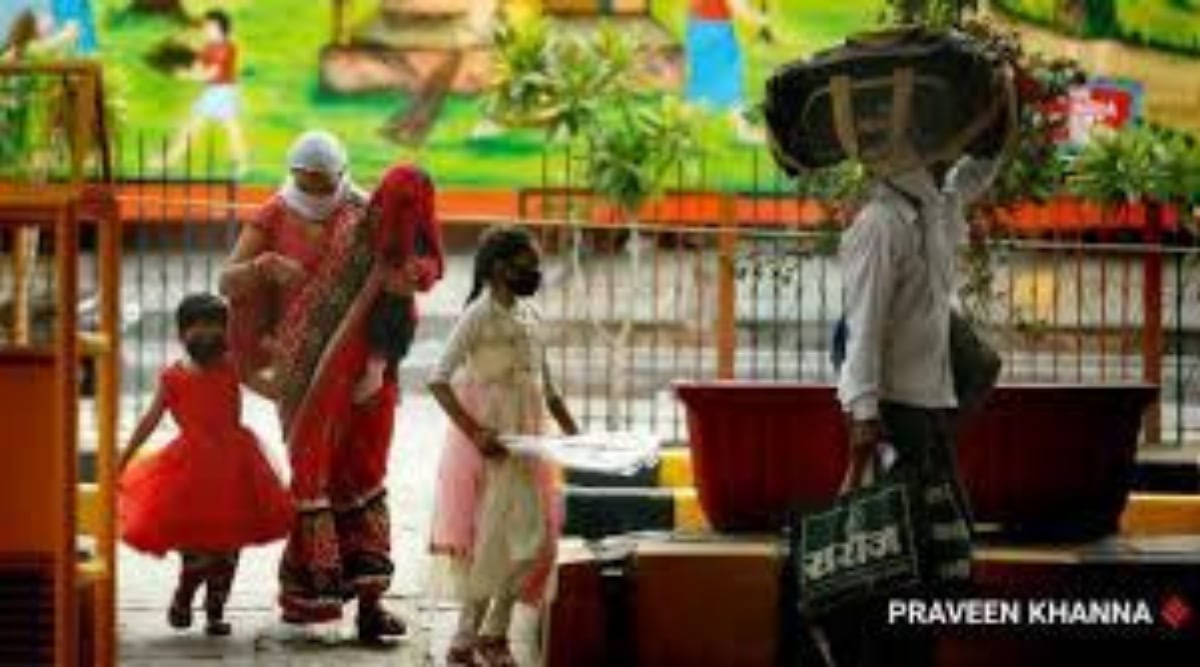 Before the poshan card was introduced, children and women were expected to visit anganwadi to register themselves for ration. (Express Photo by Praveen Khanna)
Before the poshan card was introduced, children and women were expected to visit anganwadi to register themselves for ration. (Express Photo by Praveen Khanna) To ensure that children, pregnant women and lactating mothers get uninterrupted nutrition even as they migrate with their families for work, the Integrated Child Development Services (ICDS) has introduced a “poshan card” to facilitate easy transfer of services from one anganwadi to another.
State’s Women and Child Development (WCD) minister Yashomati Thakur said two cards, green and pink, have been introduced specifically for migrants to map their movement and continue with their nutrition. “When they migrate, they often go out of our radar and do not get registered with the anganwadi in another city,” she said.
Officials said anganwadi in rural and tribal areas where high outflow of migrants is recorded will issue a green-coloured card to children, pregnant and lactating women. “This will have all details of their weight, anaemia status, (other) health problems, history of malnourishment and treatment given, and details of folic acid tablet course etc,” said Shobha Shelar, district WCD officer for Mumbai suburbs. Shelar said most cases of migration have been noted among brick kiln and sugarcane farm workers.
Once the beneficiary reaches a city, the local anganwadi worker will fill a pink-coloured card giving details of continuation of services. Shelar said the poshan card will ensure the beneficiary does not need to re-register herself again at the anganwadi.
Before the poshan card was introduced, children and women were expected to visit anganwadi to register themselves for ration. With the card in hand, they can now get ration from whichever anganwadi they find most convenient.
Data until April shows that of 60.64 lakh children aged less than six years surveyed across the state, 10 per cent were underweight. This included 5.24 lakh moderately underweight and 83,909 severely underweight children. In absolute numbers, the highest severely malnourished children were in Nandurbar (11,008), Nashik (8,749) and Palghar (5,860).
WCD officials said they realised the highest proportion of malnourishment was in children of migrant families. “The poshan card is not only to promote institutional engagement but can also be used as a means of tracking seasonal migrant families and children in the absence of a digital tracking system,” an official from WCD ministry said.
In April-end, ICDS had asked all districts to allocate funds for printing the poshan cards.
- The Indian Express website has been rated GREEN for its credibility and trustworthiness by Newsguard, a global service that rates news sources for their journalistic standards.

